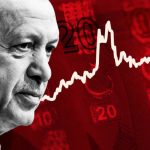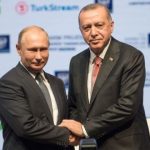In the final contribution to our week of special coverage on international self-determination movements, Rhiannon Davies explores the nationalisms of hegemonic states, and how they can be radicalised in opposition to autonomy and independence movements
ONE of the more alarming outcomes of yesterday’s Spanish election was the arrival of Vox into the Spanish Parliament, and international consciousness. Their 24 seats is the first time a far-right party has won more than a single seat in congress since the death of dictator General Francisco Franco in 1975.
Vox stood on a rabidly anti-Catalan platform and while it has been around since 2013, it took off following the Catalan independence referendum in 2017.
This strengthening of one form of nationalism against the perceived threat of another is not unique to Spain.
But is it right to call Vox Spanish nationalist? Analysis of self-determination movements around the globe tend to focus on the flag-waving of those campaigning for independence. Rarely is the spotlight turned back onto the nationalism of the hegemonic nation-state. In fact, it’s not common in news reports and politics textbooks to see a party or movement defending the existing state be referred to as ‘nationalist’.
This “banal nationalism”, as social psychologist Michael Bilig called it in his 1995 book on the subject, is a “cover” for “the ideological habits which enable the established nations of the West to be reproduced”.
Bilig continues: ”… there is something misleading about this accepted use of the word ‘nationalism’. It always seems to locate nationalism on the periphery. Separatists are often to be found in the outer regions of states; the extremists lurk on the margins of political life in established democracies, usually shunned by the sensible politicians of the centre. In consequence, those in established nations – at the centre of things – are led to see nationalism as the property of others, not of ‘us’.”
Looking at the nationalism of hegemonic states can help us understand patterns in their respective development, including – in recent times – their radicalisation.
One such pattern is the oppression of a smaller nation, often marginalised, within the bigger nation-state, especially in the context of movements for national autonomy or independence, which can have a huge influence on the identity, society and politics of a ruling nation.
In Turkey, for instance, clashes with the Kurdish minority have gone on far longer than the creation of the Republic of Turkey in 1923. The strategic location of Kurdistan, which is now split between modern day Turkey, Syria, Iraq and Iran, means that the Kurdish people have long been held hostage to the geopolitical strategies of others. Some trace back their oppression to the beginning of the nineteenth century when the Ottoman Empire tried to extend direct control over Kurdistan because it feared the Kurds would break away in the same way its Balkan territories were threatening to do. Resistance to occupying forces led to a suppression of their right to self-determination.
Following the Turkish War of Independence, The Treaty of Lausanne (which gave international recognition to the Turkish state and divided the lands inhabited by the Kurds between four countries) was signed in 1923. It contained no mention of the word ‘Kurd’. What it did say was that “all citizens of Turkey should be equal before the law ‘without distinction of birth, nationality, language, race or religion’”. It also gave recognition to the rights of minorities to use any language they wished.
However, the minorities it referred to were the Armenians and the Greeks, who are predominantly Christian. It did not recognise the fellow Muslim Kurds as a minority, insisting instead that they were equal partners with the Turks. “Happy is he who calls himself a Turk,” was the slogan emblazoned throughout the area.
The dual policies of repression and assimilation pursued by the Turks (to a degree in the late Ottoman period but mainly following the creation of the republic) is the context for the revival of an authoritarian Turkish nationalism today.
Turkey has been almost blinded by its fear of Kurdish separatism and the division of its territories to the point that it engages in policies which at least appear detrimental to its own status and ambitions. The war against the PKK (Kurdistan Workers’ Party) has cost an enormous amount of money and thousands of lives, both Turkish and Kurdish, have been lost. It has also undoubtedly damaged Turkey’s reputation on an international scale.
Yet, stirring up these tensions have been shown time and again to be a sure-fire vote winner, playing on fears deeply ingrained within Turkish national identity. The two general elections of 2015 offer a prime case study of how this works.
In June 2015, Turkey’s general election resulted in a hung parliament, the first time the Justice and Development Party (AKP) had not won an outright majority since coming to power in 2002. After months of meetings in which nation-wide violence flared and no coalition could be formed, a snap election was held in November 2015. In it, the AKP increased their share of the vote from 40.9 per cent to 49.5 per cent, and their share of the seats from 258 to 317 (out of a total of 550).
President Erdoğan was able to achieve this turnaround by framing the election as a choice between stability and chaos while fanning the flames of Turkish-Kurdish tensions, which had previously seen improving relations in the run up to the first of the 2015 elections. These tensions have been rumbling on ever since, while Kurdish political leaders have been imprisoned or purged from official roles.
This impact of autonomy movements on a national movement can also be viewed much closer to home.
The impact of the Scottish independence referendum has had quite a different effect on the dominant nationalism of the UK state. English nationalism was bolstered by the threat from within: the 2015 General Election which followed the 2014 plebiscite saw then Prime Minister David Cameron seek to whip up fear of a weak Labour minority government being in hawk to rabid Scottish nationalist, with an infamous Tory election poster of then Labour leader Ed Miliband in Alex Salmond’s pocket. Labour campaigners reported back that the message had cut through on the door steps.
It was that Tory election victory which led to the Brexit referendum, a campaign that was characterised by feverish British nationalism, but which was really energised by an English core. Writing in 2016, ahead of the EU referendum in The Guardian, Irish columnist Fintan O’Toole said “[English nationalism is] a very strange phenomenon – a passion that is driving a nation towards historic change but one that seems unwilling even to speak its own name.”
While English nationalism remains uncertain of itself and has its eyes focused more on Europe than Scotland (at least for the time being), Spanish nationalism has been galvanised by the suppression of Catalan democracy, with Vox representing its sharpest edge – not content with hindering the right to self-determination, the far-right party’s primary policy is re-centralisation – vanquishing the ‘autonomous communities’ for permanent direct rule from Madrid.
Dr Carlos Conde Solares of Northumbria University, Newcastle has attempted to depict Vox as the exception in Europe’s far-right rise – not ethno-nationalist itself, but instead the resisters of separatist ethno-nationalism.
“Where other European far-right parties use an ethno-nationalist narrative to paint the EU or other supranational powers as the enemy, Vox attacks the ethno-nationalism within its own nation. It is the Basque and Catalan nationalists who base their ideas on tribal and ethnic exceptionalism,” Conde Solares writes.
Of course the obvious problem with this theory is that it does not get close to fitting the contemporary facts.
Vox successfully mobilised anti-refugee sentiment in Andalucia in its December 2018 election breakthrough, playing on fears over the increase in North African refugees seeking to land in the south of Spain as Italy becomes increasingly hostile terrain. On the other hand, Catalan pro-independence forces were integral to the largest pro-refugee mobilisation in Europe since the crisis began, with 170,000 people marching on the streets of Barcelona in February 2017 demanding Spain take in more refugees.
In fact, if there is a defining dichotomy of Turkish, British and Spanish nationalisms, and their Kurdish, Scottish and Catalan and Basque counterparts, it is that the former tends to be more ethnic and intolerant, whereas the latter tends to be more civic and open. That contradiction alone should force a re-think on how we conceptualise nations and nationalism.
By Rhiannon Davies
Source: Common Space
Picture: Engin Akyurt



